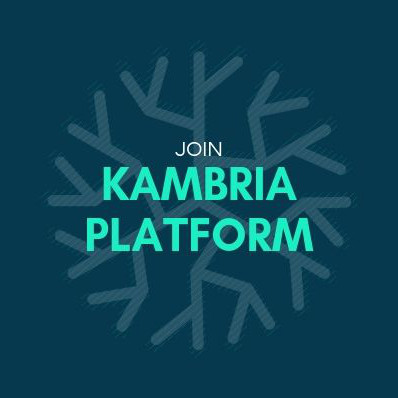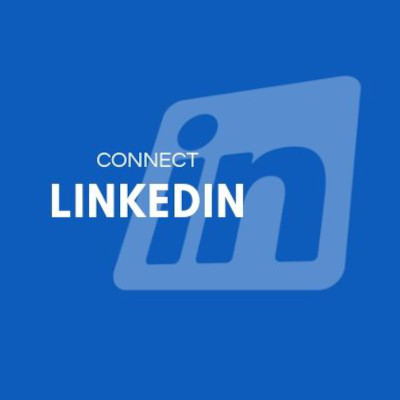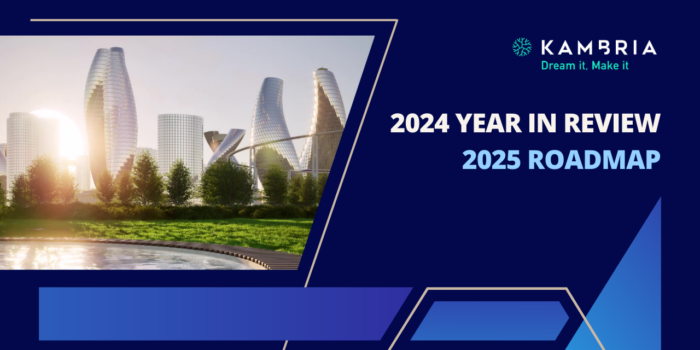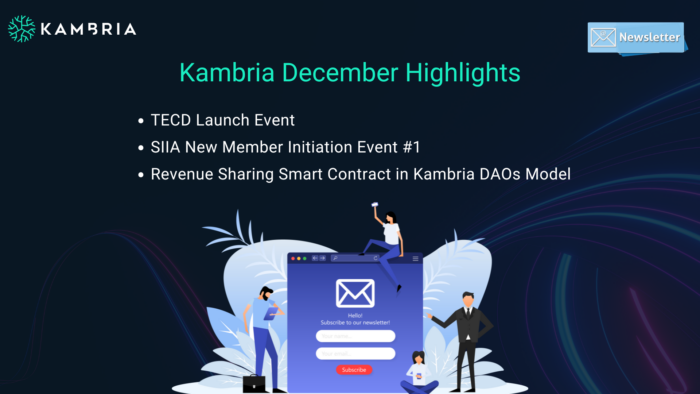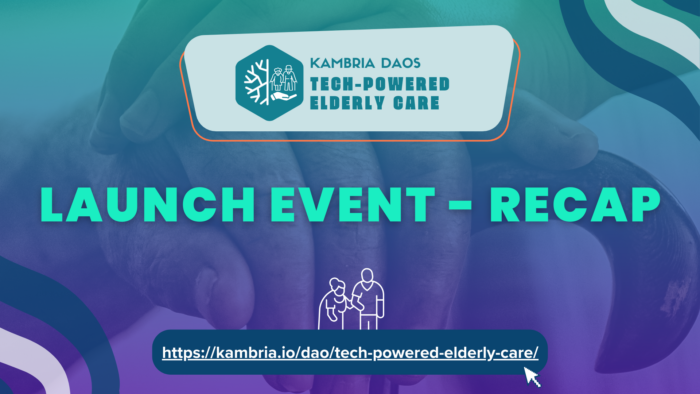Thank you to all of the Kambrians who participated in our AMA with Kambria CTO, Jared Go. Jared Go is one of the community’s favorite guests because he provides such detailed answers. Below is a summary of our conversation. For clarity, the original text has been lightly edited for grammar and spelling.
If you could not catch the AMA live, please post your question in our main Telegram channel. The team will get back to you quickly.
Hi Jared Go. What is the plan to attract experienced blockchain developers who also understand the AI world? Experienced devs are getting scarce.
Great question. I think we’ve already built a fairly strong blockchain team but are always looking for good devs to participate in Kambria. But to participate you don’t need to be a blockchain dev alone — we have firmware engineers, mechanical engineers, software engineers, embedded systems people, AI, and deep learning folks, etc. all collaborating together. That’s really the heart of Kambria and our vision for the community — bringing together people across disciplines with various expertise because some of the hardest problems to solve in the world need cross-disciplinary collaboration.
I think as Kambria and the community grow, we will continue to attract top devs who just want to get stuff done and stop reinventing the wheel all of the time. Those who want to build off of all the good stuff out there, just like no one rewrites Linux to launch a new webapp.
Our hope is that together we make such a compelling, easy-to-use, and affordable set of technologies in robotics and a few other verticals, that companies and entrepreneurs and individuals just start there. Great question!
As there is not much competition for Kambria in robotics and Al in the world, do you think Kambria will benefit?
There is absolutely a huge opportunity and a need for this. Just this week we had a bunch of meetings with professors from Lehigh and other schools interested in working with Kambria. I think we are here at the right time and the right place to really make a difference. The story a professor told me was that it took them 2 years to make their robot base and tablet, and only then could they start doing their human-robot interaction research.
When I described what we are trying to do she was blown away and talked about how useful that was. She had to manually go and buy another really bad cheap arm and cut it apart and spend all this time putting it back together to do what they wanted to do. With Kambria we want to stop reinventing the wheel all the time and make maximum forward progress together.
[Moderator] Here is picture and video from Lehigh’s visit to our office. Lower right corner is Jared Go controlling the robot arms with VR. https://www.instagram.com/p/BpGihk0Am7q/?utm_source=ig_share_sheet&igshid=s3ijo9jze54
How much time will it take Kambria to make itself known as the best robotics company?
It’s hard to say, but I think Kambria can have a huge impact quickly in a few years. We will depend on an awesome community like you to really help bootstrap and keep bringing in other interested groups and projects and being active participants.
I really believe in the open collaboration model beating out closed innovation.
Do you have companies lined up and ready to utilize the platform? I understand the theoretical benefits of an open platform. It would be reassuring to know real companies are waiting in the wings and wanting to use Kambria.
We do have companies lined up and ready to participate. For example, we have a large partner that is interested in doing a large deal on a particular vertical on Kambria, bringing hackathons and innovative ideas to their development pipeline. Our goal is to incubate some of the technologies and put them together into an easy to use form, i.e. a really good robotics platform, etc. And we have other large companies already thinking about applying robotics to their own vertical, i.e. cleaning services, hospital monitoring, etc.
The interesting thing is that many of these aren’t traditional robotics companies, they’re companies that have a particular vertical and existing line of business and want to explore how to use robotics in that business. That’s the perfect target for initial Kambria users as they need the help of Kambria tech and community to get what they want completed as fast as possible.
So we think of it like your business of today + our robotics tech and community = your transformed business of the future.
That’s our pitch for a lot of these large companies. We also have a bunch that want to execute on R&D projects faster and better. So far the response has been really great.
How does the value of KAT appreciate? Do they become more scarce (how would that happen)? There’s obviously bounties paid in KAT up for grabs. However, how would a token holder benefit from holding and buying these tokens?
KAT is used as a game theoretic utility token to incentivize people to contribute technology and be rewarded. Our goal is to use the token to track and facilitate contributions and real value added to Kambria (for example, sponsoring a project, completing a bounty, winning a tech competition, contributing some tech that someone else buys/commercializes, etc.)
As companies license tech out of Kambria to commercialize, we can burn tokens as part of the license fee they pay and also give the people whose projects contributed to the commercialization a bonus of the tokens. We really want to make sure the people putting in work are rewarded on top of the pride they get from engineering and making awesome stuff.
As a developer, what’s the benefits of using Kambria over other projects such as Watson? Why would I consider using a platform that has token economics over anther than one that doesn’t?
Hi Jen! First of all, Kambria is not the same as Watson. Watson is basically a set of web APIs to do a few different recognition and other tasks. That’s about it. There’s nothing about making a robot, getting plastic or metal made, moving motors and arms, etc. So basically if you give someone Watson APIs and then make a robot to look for stuff in the kitchen, then you are still at square one with the robot part.
The whole point of Kambria is to make the stuff that’s hard (design a robot? motor controllers? display? sensors? arms? web control? navigation algorithms? etc.) all together as ready working high tech systems and platforms but that are open enough such that they are easy to modify to do what you need — rather than like — oh, this platform is so close but DANG, I can’t control the motor how I like so I need to start from scratch.
So Kambria is actually a lot larger vision than Watson, I believe. Watson may be an API that you can use from a Kambria robot, but Kambria is way more than just web APIs. Hope that helps!
Can you provide a little insight about what sparked Thuc and yourself to come up with the idea for OhmniLabs and your telepresence robots?
Sure thing! The interesting thing for both of us was first to get together and think about how to help with long-term positive change for society. Being technologists, we believe in the promise of robotics long term to improve the quality of life for everyone, everywhere. But looking at the many failed promises for decades we knew we had to be careful and do things differently.
Also, initially starting as software folks, we thought that we needed to reinvent a new way to develop and also produce robots — a way that’s more flexible and cost-effective so that the entire robot development pipeline can be much cheaper and things can be tried and explored at 1/10 or 1/50th the cost.
To start, we chose one of the few initial applications we thought added value in homes, etc. to everyday people, which was telepresence to connect families. From that, we found several related verticals that showed strong adoption, for example, senior care and stay-at-home kids who can’t attend school in person.
Selling a product like this and not just being an R&D robotics company forces you to be ultra-disciplined. Probably unlike any blockchain company out there, we run production, shifts, material sourcing, support, etc., every single day with our lean team. We wanted to see the whole thing end-to-end to make sure we understand the entire value chain for robotics and can use that to help other people do their own development faster and better.
[Moderator] Jared Go spoke in this podcast about what inspired Kambria. Hope you can check it out! https://medium.com/kambria-network/what-inspired-kambria-ff0b4a0ab304
A follow-up question to this — how do you and other founding team members know each other?
Basically, Thuc and I have known each other since 2001. We were roommates at Carnegie Mellon undergrad in Computer Science. We did a ton of robotics research together, robosoccer, doing multiagent systems for teams of unreal tournament bots that play capture the flag and a whole lot of other things.
After that, we both went to Stanford for our Ph.D. in CS. Thuc went for game theory + AI and I went for graphics. Thuc finished and started a company with his professor that got acquired by Google. I left the Ph.D. program for a different startup where I was CTO and got into a lot more hardware stuff. From that, I got more into making, 3d printing, electronics, everything end-to-end. Then we reconnected later and wanted to work together again.
Tingxi is my really close friend from that last company; he was engineering director when I was CTO. We worked really well together. He did a ton of grid computing, backend stuff, etc. so it was a good fit.
BTW, a piece of advice for any other entrepreneurs doing hardware…I feel like 3 is a good number for founders. There are just SO many things to tackle in hardware that I couldn’t imagine only 2 of us or even (eep!) a solo founder. We all have a ton of fun every day together.
I notice you worked at Microsoft. What did you do there?
At Microsoft, I was on the Windows UI team. I wrote some of the controls for the Viewbox, part of the new .NET stuff at the time that was going into Vista and later Windows 7. I also wrote some really cool exploded 3d views where you can take any app UI and deconstruct all the layers in 3D. That was for fun/bonus work! 🙂
What roadblocks did you encounter that caused the team to feel a responsibility to launch Kambria’s Open Innovation Platform?
This is a really interesting question. There are SO many things in hardware and software and putting them together that are challenging. For example, think of the simplest thing: building a good and safe charging system for a robot. You can go to AliExpress and maybe buy a lithium battery charger board. But then you need to source your own battery and make sure the chemistry matches. You can buy a battery pack, too, but maybe it’s for an ebike and too heavy or too large for you. Now you find one, you need to find a good balancing charger. You look for one and realize most are all wall powered. You need to plug it in and press buttons, you can’t use it unattended. Then you also want to make it safe charging. How are you going to put some circuitry on top of all of this? So you now have to go and design our cool magdock system from scratch. Magnetic contacts of particular stainless steel allow ultra compliant contacts so you never scratch/damage the dock or the robot, safe charging to only turn on when the bot is touching.
BUT now look at what happened. Being able to safe charge a robot is not (necessarily) the most key differentiator of all the different things that go into say a telepresence robot, but we had to spend R&D time and effort. (By the way, I think our system is pretty darn awesome!)
But now if company B wants to make that, they go and repeat the whole thing. It’s much better if we can share and get some value out of it, right? If they reward us for the design/tech in a way that doesn’t take too much overhead for us to share and we can get a bit out of it and they have a charger they can use now, it’s a win-win. THAT is the spirit of open tech in Kambria — eliminate all these oodles of redundant work, finding vendors for things, finding what good parts are to use, how to combine them, etc.
If we all have more common ways of interchanging these designs and getting them made, we can all collaborate more and reuse more. And with the financial incentive model/reward model, people can actually take a bit more time to clean up and share their work and get rewarded for it.
Now, consider the same case except that Ohmni needed to design and build our own HDMI + USB touchscreen, our own mic system, our own motor controller boards, and drives, etc. You can see how much work stacks up. You just can’t find those good, open designs ready to go and be made online, again because today there is no incentive. We will bring and put together all this at your fingertips.
In terms of technology, what are the key challenges for you as you are trying to build the Kambria platform?
Really great question. Mature blockchains is always a challenge. It’s a moving target but we are optimistic and it’s good to be an early mover here. I still really like what the ethereum team is doing overall and there are lots of other good ideas out there. I feel that these are all very solvable problems and we’ll have scalable, cheap blockchains fairly soon for many different applications.
For us, we are working really hard to grow three things — content, community, and contributions (i.e. sponsorships, large companies putting in bounties, etc.) Each has its own challenges but I think we’re learning a ton every day and really reaching hearts and minds.
We have a lot of people who really want to contribute content or want to use content (i.e. a good cheap arm, etc.). And we are working hard to grow the community with folks like you and also in various sectors like various expertise in robotics, etc. Contributions we are lining up — universities and corporations that want to participate in open innovation or robotics/AI tech. So I think we’re making some good progress pushing on all fronts at once.
How does the company handle disputes?
For disputes like tech ownership, our goal is to make sure the community as a whole can protect itself. We want to make sure no company can come along and try and patent all the work going into Kambria, for example. And we think we have a good strategy for that, a mix of publishing prior art clearly and stamping it on-chain if needed, and a way for the community to crowdfund action against bad actors trying to cheat the community. I think this can be the basis for protection for projects that are way stronger than anything being done today.
There will also be nominated experts and judges as well from the community who can help weigh in on events, for example, about tech ownership or other issues, such as if someone uploaded a copy of some other code versus authoring it originally. I plan to do a lot of this cleaning and triage work early on.
What are some of the blockers and limitations you find with the current state of the tech?
Great question! It’s all about predictability and speed. I was actually at SF Blockchain Week speaking on a panel about developer tools. For example, the first time you use some Dapps, you probably feel a bit…uncertain, right, because the metaphor is so different. You click the button and then wait and…wait and…check etherscan…why is my transaction not pending…etc. Did it go through? Is the gas price right?
So we need good UX/UI encapsulations as well to give users understanding and comfort + expectations. Faster/more scalable chains also help. I’m not a huge fan of delegated authority systems because as already shown in some cases, humans will collaborate to try and cheat systems if they can. So I think it’s a lot about developer tools (i.e. you need an etherscan, you need an eth gas station, all are a must to actually use or develop eth stuff), about user experience, and about blockchain maturity/scalability. Those are the three key areas I would push on to really keep getting more and more adoption and to bring crypto and tokens to the mainstream.
What are your thoughts on the scalability issue of blockchain?
I think this will be solved sooner than people think to at least get to the “next level” of applications that can be built. Of course, from then on it’s always a race as usage goes up, but I think people are pursuing the right research and the right directions with sharding, reducing energy usage with proof of stake, doing micropayments and stuff with off chain, etc. So I am quite optimistic overall.
I also think everything right now is necessarily a hybrid. It’s hard to provide a good user experience in many cases totally depending on things to clear on-chain, for many things that are not as naturally financially or transaction-oriented. So expect many popular dapps to still involve lots of other things like centralized real-time messaging systems, etc.
How do you feel the Kambrian explosion of robotics will affect the job market? This is in relation to the hot topic of jobs being replaced by robots.
Great question! What I really believe in my heart is that the path to better living for everyone on earth goes ultimately through getting assistance and help to everyone on earth. And it doesn’t scale with only humans helping humans. So automation will continue no matter what, it’s just a question of whether it will get stuck as automation helping business save money (some of which does get passed down to consumers) or will it really also help people live everyday life such as helping to provide cleaner streets, safer neighborhoods, medical care for everyone, help when your parents are sick, help when your baby is fussing and you need to go to work and pick up food and do a thousand things.
Our bet with Kambria is that we need something more open, more inclusive, and more aspirational to really go straight for the latter. If only driven by corporate profit then those solutions will happen later and in a very controlled/centralized way. So ultimately I think humans will still have more than enough work for everyone in the world.
[The end]
Once again, thank you, everyone, so much for your overwhelming enthusiasm and your support for this AMA! And thank you, Jared Go, for your time and your insightful answers to all of the questions from our community today!
We are delighted to give away TWO tickets to “Innovation, Community, Impact: Protocol for the Future,” our premier event in Ho Minh Chi City, Vietnam on November 14th for the BEST questions in tonight’s AMA!
Congratulations, Jen Blockchain and bigdaddyX! We appreciate your awesome participation along with the rest of our community.
ABOUT Jared Go — Co-Founder & CTO
Jared Go is an avid maker and roboticist, previously CTO and founding member at a networks startup. He has an extensive experience in blockchain, AI, real-time graphics, VR, mechanical engineering and electrical engineering. Jared Go is a Stanford Graduate Fellow and has a BS in computer science from Carnegie Mellon University.
ABOUT Kambria
Kambria is an open innovation blockchain project that enables and incentivizes collaboration in R&D, manufacturing, and commercialization of advanced technology. We are developing our own public chain with protocols uniquely designed to address the current waste and inefficiencies in today’s innovation model. Kambria will allow for many verticals, including Biotech, Space, and Autonomous Vehicles, to be developed and thrive in the ecosystem. We are focusing first on the AI and Robotics vertical with the backing of our well-established robotics company, OhmniLabs. Through existing partnerships with top universities and large international corporations, as well as access to talented developers, we aim to build an ecosystem that can bring the next wave of frontier technology to provide value to billions of people around the world.
Thank you for your time!
The Kambria Team
Website: https://kambria.io/Whitepaper: https://kambria.io/Kambria_White_Paper_v2.pdf
Telegram (ENG): https://t.me/kambriaofficial
Telegram (KOR): https://t.me/KambriaKorea
Telegram (VIE): https://t.me/KambriaVietnam
Telegram (CHN): https://t.me/KambriaChina
Twitter: https://twitter.com/KambriaNetwork
Facebook Page: https://facebook.com/KambriaNetwork
Facebook Group: https://www.facebook.com/groups/kambria/
Discord:https://discord.gg/rjqDSdC
Reddit: https://www.reddit.com/r/KambriaOfficial/
Medium (ENG): https://medium.com/kambria-network
Medium (CHN): https://Medium.com/kambriachina
Steemit: https://steemit.com/@kambrianetwork
Weibo (CHN): https://www.weibo.com/kambriachina
Email: info@kambria.io

